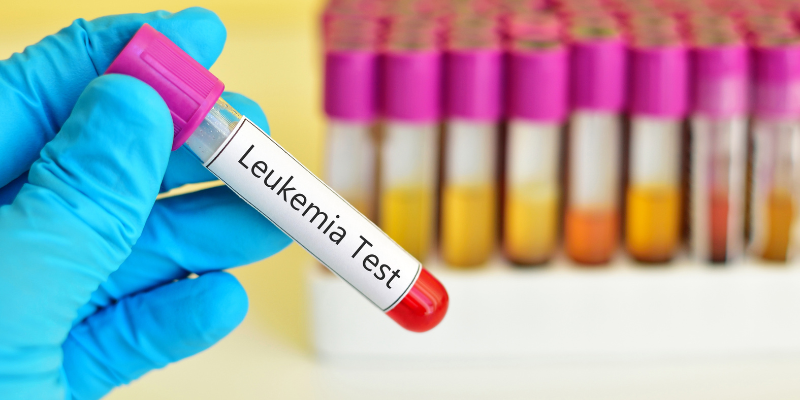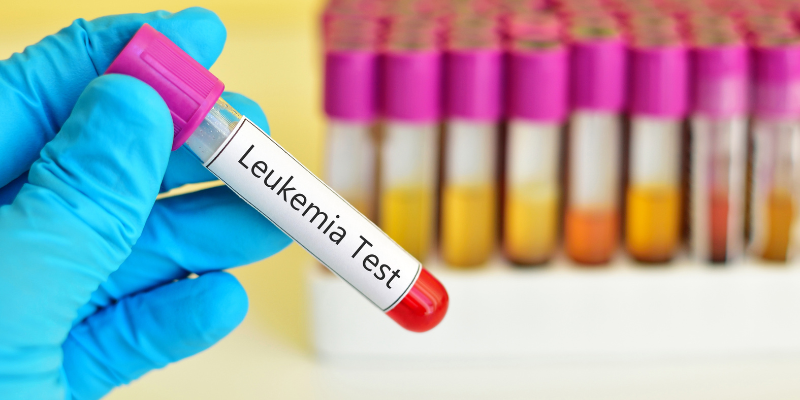Blood cancer is a broad term that covers a variety of cancers affecting the blood, bone marrow, and lymphatic system. Though these cancers differ in terms of origin, symptoms, and blood cancer treatment cost, they all disrupt the normal function of blood cells, which are critical to your body’s immune system, oxygen transport, and clotting mechanisms. Understanding the types of blood cancer, along with factors like is blood cancer genetic, is important in recognizing their impact and pursuing the right treatment path. In this article, we’ll dive into the three main types of blood cancer: leukemia, lymphoma, and multiple myeloma.

Understanding the Basics of Blood Cancer
Before discussing the different types, it’s essential to know that blood cancers originate from
abnormal cells in the blood or bone marrow. These cells multiply uncontrollably, preventing normal
blood cells from doing their job effectively. The exact cause of blood cancer is still unknown, but
factors like environmental exposure and genetic predisposition can contribute. In fact, one common
question patients ask is, “Is blood cancer genetic?” The answer isn’t always straightforward, but
genetics can play a role, particularly in some forms of the disease.
The 3 Main Types of Blood Cancer
Leukemia
Leukemia is perhaps the most well-known type of blood cancer. It originates in the bone marrow, where blood cells are produced. In leukemia, the body produces abnormal white blood cells that don’t function properly, crowding out the healthy blood cells and disrupting normal body functions.
Types of Leukemia
Acute Lymphocytic Leukemia (ALL): This type mostly affects children and progresses rapidly.
Acute Myeloid Leukemia (AML): Common in adults, AML also progresses quickly but originates in different cells than ALL.
Chronic Lymphocytic Leukemia (CLL): This form develops slowly and primarily affects older adults.
Chronic Myeloid Leukemia (CML): CML also progresses slowly but can develop into a more
aggressive stage if not treated.
Leukemia Symptoms
- Fatigue
- Frequent infections
- Easy bruising or bleeding
- Fever
- Swollen lymph nodes
Leukemia Treatment and Costs
Treatment for leukemia often involves chemotherapy, radiation, and, in some cases, a bone marrow transplant. The blood cancer treatment cost varies depending on the stage and type of leukemia. For example, a bone marrow transplant can be expensive, adding to the overall costs.
Lymphoma
Lymphoma is a type of blood cancer that begins in the lymphatic system, which is a key part of the
body’s immune defense system. Lymphoma affects the lymphocytes, a type of white blood cell that
fights infection. There are two main types of lymphoma: Hodgkin lymphoma and non-Hodgkin
lymphoma.
Non-Hodgkin Lymphoma (NHL)
This is a broader category encompassing various types of lymphoma. NHL is more common than HL and can either be slow-growing or aggressive.
Hodgkin Lymphoma (HL)
HL is identified by the presence of Reed-Sternberg cells. It’s relatively rare but has a high cure rate
with treatment.
Lymphoma Symptoms
- Painless swelling of lymph nodes
- Night sweats
- Unexplained weight loss
- Fatigue
- Fever
Lymphoma Treatment and Costs
Treatment options include chemotherapy, radiation, and targeted therapies like immunotherapy
The blood cancer treatment cost for lymphoma can vary depending on the type and the treatment
plan chosen. Many patients want to know, “Is blood cancer genetic?” In some cases, genetic factors,
including inherited mutations, may increase the risk of developing lymphoma, but lifestyle and
environmental factors also play significant roles.
Multiple Myeloma
Multiple myeloma is a less common but highly aggressive type of blood cancer. It originates in the
plasma cells, another type of white blood cell responsible for producing antibodies. In multiple
myeloma, abnormal plasma cells accumulate in the bone marrow, leading to bone damage, kidney
issues, and an impaired immune system.
Multiple Myeloma Symptoms
- Bone pain, often in the back or ribs
- Frequent infections
- Fatigue
- Anemia
- Kidney dysfunction
Multiple Myeloma Treatment and Costs
Treatment typically includes chemotherapy, targeted therapy, and stem cell transplants. The blood
cancer treatment cost for multiple myeloma can be high, especially if advanced treatments like stem
cell transplants or newer medications are required.
Is Blood Cancer Genetic?
Many patients are concerned about whether is blood cancer genetic. The answer varies
depending on the type of blood cancer. While most cases of blood cancer occur due to mutations
that happen over a person’s lifetime, a small percentage of cases are linked to inherited genetic
mutations. For example, individuals with a family history of leukemia or lymphoma may have an
increased risk of developing these cancers. However, lifestyle and environmental factors play a
crucial role as well. If you’re concerned about is blood cancer genetic risk, genetic testing and counselling can help determine whether you or your family members have an increased likelihood of developing blood cancer.
Factors Influencing Blood Cancer Treatment Cost
The blood cancer treatment cost is one of the major concerns for patients and their families. Several
factors can influence the cost of treatment, including:
Type of Blood Cancer: Treatment costs can vary greatly between leukemia, lymphoma, and multiple
myeloma. Some cancers may require longer and more intensive treatments, driving up the cost.
Stage of Cancer: Early detection usually results in less aggressive treatment, while advanced stages
may require more complex and expensive interventions like bone marrow transplants or cutting edge therapies.
Type of Treatment: Chemotherapy, radiation, and newer therapies like immunotherapy or CAR-T
cell therapy can all vary in cost. The type of health insurance coverage and location of treatment also
play significant roles in determining the final bill.
Blood cancer, in its various forms, presents a significant health challenge, but advances in treatment
have improved outcomes for many patients. Whether you’re dealing with leukemia, lymphoma, or
multiple myeloma, early detection and understanding your treatment options are crucial. The blood
cancer treatment cost can vary, so it’s essential to discuss your treatment plan in detail with your
healthcare provider to understand the financial aspect. Additionally, it’s worth noting that while not
all blood cancers are genetic, a family history could play a role, so genetic counseling may be helpful
for those at higher risk.

